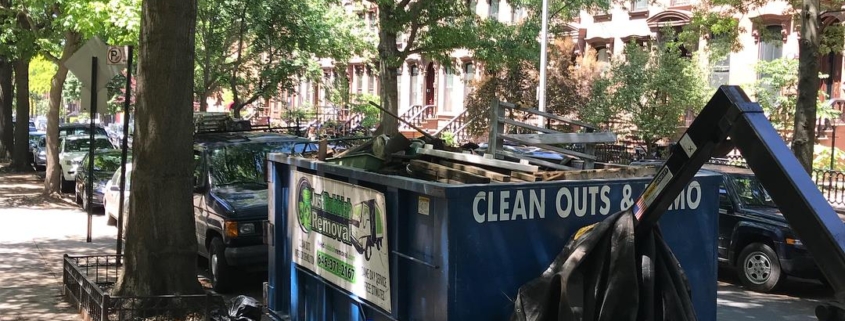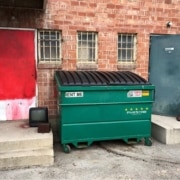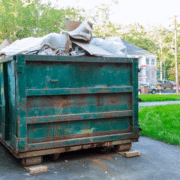Choosing the Perfect Dumpster: The 5-Star Dumpster Guide
Dumpsters may not be the most glamorous topic, but they are crucial in waste management and maintaining clean and organized spaces. Whether you’re a homeowner embarking on a major renovation project, a business owner looking to streamline your waste disposal, or just needing temporary storage for debris, choosing the perfect 5-star dumpster is essential.
This 5-star dumpster guide will walk you through the key factors to consider when selecting a dumpster, ensuring you make the right choice for your needs.
Determine Your Project Needs
Before diving into the world of dumpsters, it’s essential to define your project’s scope and requirements. Consider the following questions:
1: What type of waste will you be disposing of? Is it household trash, construction debris, yard waste, or hazardous materials?
2: How much waste do you expect to generate? Estimate the volume or weight of the debris to determine the appropriate dumpster size.
3: What is the duration of your project? Will you need the 5-Star Dumpster for a day, a week, or longer?
Where will you place the dumpster? Ensure you have enough space on your property or the job site for the dumpster and that it won’t obstruct traffic or violate local regulations.
Understanding your project’s needs will help you narrow your choices and select the most suitable dumpster size and type.
Choose the Right Size
Dumpsters come in various sizes, typically measured in cubic yards. Your size should align with the amount of waste you expect to generate.
Selecting a 5-Star Dumpster that is too small can result in multiple trips for disposal, while one that is too large may be wasteful and cost more than necessary. Thus, one should know how much a dumpster weighs and then select it according to the needs.
Here’s a general guideline:
1: 10-20 cubic yard dumpsters are ideal for small to medium-sized projects, like garage cleanouts, small renovations, or landscaping.
2 20-30 cubic yard dumpsters suit larger projects, including home renovations, roofing, or construction jobs.
3 30+ cubic yard dumpsters are typically reserved for extensive construction or commercial projects.
Remember that weight restrictions may apply, especially for roll-off dumpsters, so consider both volume and weight when choosing the size.
Dumpster Type and Placement
Dumpsters come in various types, each designed for specific purposes. The two primary types are:
1: Roll-off dumpsters: These are typically used for construction and demolition debris, and they’re delivered to your site and picked up by a truck with a roll-off system. Roll-off dumpsters are versatile and available in various sizes.
2: Front-load dumpsters: Commonly used by businesses and commercial properties, these are smaller, permanent dumpsters designed for routine waste disposal. They are emptied by a front-loading garbage truck.
Depending on your needs, you may also encounter specialty 5-Star Dumpster for concrete or hazardous waste materials. When choosing a dumpster type, consider the ease of loading and unloading and the space available for placement on your property.
Budget Considerations
Dumpster rental costs vary based on size, type, location, and duration of use. To make an informed decision, request quotes from multiple dumpster rental companies and compare their prices and terms.
Be sure to inquire about additional fees, such as delivery charges, overage fees for exceeding weight limits, or rental extension costs. While it may be tempting to choose the cheapest option, prioritize value over cost.
Consider the overall quality of service, including reliability, customer support, and the condition of the dumpsters provided. Paying more for a reputable dumpster rental service can save you headaches and ensure a smoother experience.
Environmental Considerations
Waste disposal practices are increasingly under scrutiny in today’s environmentally conscious world. When choosing a dumpster, consider the environmental impact of your waste. Here are a few tips:
1: Recycling options: Look for dumpster rental companies that offer recycling services. This can help divert recyclable materials from landfills.
2: Hazardous waste disposal: If your project involves hazardous materials, ensure you choose a 5-Star Dumpster provider that complies with local regulations for hazardous waste disposal.
3: Sustainable practices: Some dumpster rental companies may have sustainable practices, such as using fuel-efficient trucks or recycling a portion of the waste they collect. Inquire about their environmental initiatives if sustainability is a concern for you.
Local Regulations and Permits
Before you rent a 3-yard dumpster, check with your local government or municipality for any regulations or permits required for dumpster placement.
Different areas may have specific rules regarding dumpster size, type, and placement. Comply with these regulations to avoid fines or delays in your project.
Customer Reviews and References
Finally, take into account the power of customer reviews and references. A reputable dumpster rental company should have a track record of satisfied customers.
Look for online reviews, ask for references from the rental company, and seek recommendations from friends or colleagues who have used similar services. This firsthand information can provide valuable insights into the quality of service and reliability of the company you’re considering.
Conclusion
Choosing the 5-star dumpster may not be the most exciting task, but it’s a critical step in ensuring the success and efficiency of your project. By carefully considering your project’s needs, selecting the right size and type of dumpster, and adhering to environmental and regulatory guidelines.
One can make a 5-star choice that simplifies waste management and keeps your space clean and organized. Remember that a well-chosen dumpster can make a world of difference in the smooth execution of your project.







